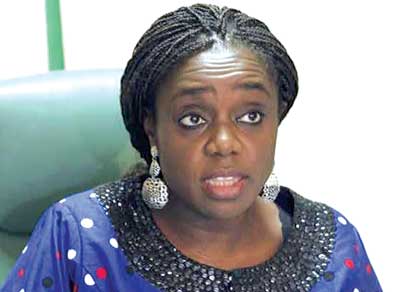
Vincent Toritseju
18 June 2018, Sweetcrude, Lagos — The absence of rules of practices governing deposits, withdrawals and investments of the Nigerian Excess Crude Account, ECA, were affecting the management of account, experts have observed.
According to these experts, which included a former Vice President (Africa Region) of the World Bank, Mrs. Obiageli Ezekwesili; former Minister of State for Petroleum Resources and Chairman of the Nigerian Natural Resource Charter, NNRC, Expert Advisory Panel, Mr. Odein Ajumogobia; former Director of the Department for Petroleum Resources, DPR, Mr. Osten Olorunsola; and a member of the Central Bank of Nigeria, CBN, Monetary Policy Board, Prof. Adeola Adenikinju, Nigeria failed to make any significant deposit into the ECA between July 2017 and January 2018, when crude oil price began to rise.
The experts observed this at a recent savings and stabilisation mechanisms roundtable organised by the NNRC and Oil Revenue Tracking Initiative, ORTI, in Lagos.
In a communique at the end of the meeting, the experts, who also included other members of the NNRC Expert Advisory Panel such as Mr. Sam Daibo; Dr. Ukoha Ukiwo; and Ms. Ronke Onadeko, as well as officials from relevant government ministries and departments, said Nigeria required an improved legal, policy and advocacy frameworks for the ECA and other stabilisation funds it has to be more effective and beneficial to citizens.
They expressed disappointment that despite the country earning money estimated to be in excess of a trillion dollars from oil, there have not been any significant savings nor has the country been able to translate the huge revenue into productive capital through human development, physical infrastructure and institution building.
“There has been no significant increase in the ECA despite rallying oil between July 2017 and January 2018. Appropriations from the Excess Crude Account had previously gone through the FAAC (Federal Accounts Allocation Committee).
“In the past three years, however, this does not seem to be the case. Withdrawals from the ECA are not disclosed to the FAAC even when appropriately documented elsewhere.
“Successive governments have not followed due process and have not been transparent in the management of the ECA. The absence of rules or practices governing deposits, withdrawals and investments of the ECA led to Nigeria being ranked the most poorly governed sovereign wealth fund among 33 resource-rich countries in a 2017 report by the Natural Resource Governance Institute,” they said in the communique.



